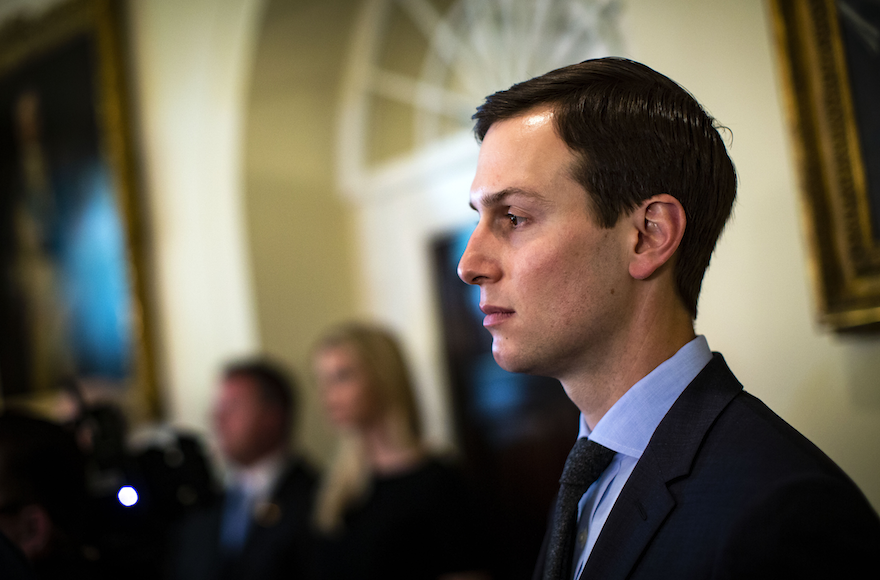
Conflicted Jewish voters contemplate Clinton and Trump
By Alina Dain Sharon/JNS.org
According to demographic data, although Jews represent just 2 percent of the U.S. population, surveys indicate that more than 90 percent of Jews who are registered to vote make it to the polls, compared to only 74 percent of all Americans—meaning the Jewish vote might matter more than the casual observer might think.
“As elections evolve, people become increasingly committed to one side or another—if they’re paying attention. And one thing we know about Jewish voters: they pay attention to politics and to presidential campaigns,” Dr. Steven M. Cohen, a research professor of Jewish social policy at Hebrew Union College – Jewish Institute of Religion (HUC-JIR), told JNS.org.
“Jews are hyper-involved as donors, writers, technicians, journalists, and even academics. They contribute more than others to campaigns, and they vote more than others,” he said.
Will conflicted Jewish voters choose Clinton or Trump?
The Pew Research Center’s 2013 “Portrait of Jewish Americans” survey showed that 70 percent of Jewish voters were Democrats, compared to 49 percent of the general American public. But some Jewish voters do not have a specific partisan affiliation, and even for some of those who do register with a particular party, the choice between Clinton and Trump may not fall along those partisan lines.
Liran Kapoano, a registered Republican who has worked for a number of pro-Israel organizations and supports the “Never Trump movement,” has founded the website GOPWithHer.com for Republicans who support Hillary Clinton because they do not want to see Donald Trump in the White House.
“It’s not enough to vote for a third party, or not to vote, because that’s only half of the job. It needs to be an anti-Trump and pro-Hillary movement,” Kapoano told JNS.org. (To date, the most prominent known third-party option for November’s general election is Libertarian Gary Johnson.) “There are a lot of Republicans who are very offended, upset, and frankly scared by the potential for a Trump presidency,” said Kapoano, who expressed that Trump alienates those who should be his allies while emboldening those who should be his enemies.
Kapoano also questions Trump’s record on Israel. “I know a lot of people who are very pro-Israel and want to vote for Trump,” he said. “They are allowing themselves to be convinced by someone who has no intention of doing what he says.”
When it comes to Hillary Clinton, Kapoano calls the former first lady’s support for Israel “genuine though misguided,” and while he does agree with some aspects of Clinton’s foreign policy, in his view she does not take those views far enough. On social issues, Kapoano calls himself “fairly liberal,” but laments that like President Barack Obama, Clinton’s attention “is on things that are less important” than issues like foreign policy or the national debt. Despite his mixed feelings about Clinton, Kapoano believes the Democratic candidate is the lesser of two evils.
On the other side of the political spectrum lies Samuel Fein, a Democratic-Jewish regional lawmaker for the 6th Legislative District of Albany County, New York. While he doesn’t necessarily dislike Clinton, he is a supporter of Sen. Bernie Sanders. But in a Clinton-versus-Trump election he plans to vote for Clinton. “I think [Trump] is using racism to gain support,” Fein said, citing Trump’s comments about banning Muslims from the U.S., his remarks on Mexicans, and more.
Back on the political right, Republican-Jewish columnist Bethany Mandel of New Jersey may also end up reluctantly voting for Clinton.
“Unless my state is close [in the general election], I don’t plan to cast a vote for the president. I might vote for Gary Johnson, I need to make that decision. If my state does turn out to be close, I will vote for Hillary Clinton with a stiff drink in hand,” she told JNS.org. Mandel calls Clinton a “criminal,” but does not believe she would “destroy the fabric of the American Republic in the same way that Trump would with his disregard for the First Amendment, race baiting, etc.”
Nir Moriah, a Jewish martial arts instructor from Houston who did not identify with either major American political party when speaking with JNS.org, said that both Clinton and Trump are “horrible options.”
Moriah does ultimately plan to vote for Trump due to his belief that the biggest global threat today is radical Muslim terrorism. “I think the Muslim world is presenting an extreme threat that we don’t understand or don’t address because of political correctness. I’d rather err on the side of voting for the person who recognizes this,” he said.
Moriah also disagrees with the perception that Trump is racist against Muslims.
“When someone tells you they’re going to kill you and are determined to destroy your way of life, believe them. I don’t care if it’s a Muslim or green Martian. Does that mean that every Muslim is a terrorist? No. Does that mean I should address the threat? Yes. It would suicide to do otherwise,” he said, adding, “I’m going to err on the side of the one who might have no plan of action, but at least recognizes the threat.”
Back on the political left is Rabbi Iris Richman of New York City, who founded the Sanders-supporting group Rabbis for Bernie. Richman, a Conservative rabbi, is hanging on to the small remaining possibility that Sanders could still win the Democratic nomination. But if Clinton is the nominee, Richman said that the next six months must resolve several unknowns that she needs answered in order decide who to vote for in the fall, including whether or not Clinton gets indicted by the FBI over her email scandal, who each candidate will choose as their running mate, and whether Clinton will evolve into a more progressive candidate or remain a moderate Democrat.
Is not voting an option?
“I’m a strong believer that you should always vote,” said Democrat Samuel Fein, arguing that those who cannot vote for either Clinton or Trump should “at least go out and vote for a third-party candidate.” Those who do not vote cannot complain afterward about government policies they disagree with, he said.
Moriah, too, believes in voting no matter what. “People have laid their lives down so that I could exercise my right to express my opinion in a democratic system,” he said. “Everyone voting also means a better picture of what the country wants, and it’s the only way I know how to affect the process.”
But Richman said she understands the impulse on the part of some disillusioned voters to stay away from the polls, citing major flaws in the “democracy we’ve been presented” during the current election campaign.
HUC-JIR’s Cohen said he is “very committed to the idea that voters should choose the best of the available options. Life is full of choices between bad and worse. It is better to choose ‘bad’ than to allow ‘worse’ to triumph.”
Stephen Colbert draws a giant swastika on TV to mock Trump
By Ben Sales
America, 2016. Where a comedian mocks a major party’s presumptive presidential nominee by drawing a large Nazi symbol on television, and no one is really surprised.
The swastika, courtesy of CBS’s “The Late Show” host Stephen Colbert, came after a routine ribbing of Donald Trump, who in the wake of last week’s terrorist attack in Orlando seemed to imply that President Obama may have willfully ignored the threat. “We’re led by a man that either is not tough, not smart or he’s got something else in mind,” Trump told Fox News on Sunday. “There’s something going on. It’s inconceivable. There’s something going on.”
To Colbert, Trump’s claims sounded like “something my racist aunt would say at a picnic.” But to try to suss out Trump’s meaning, he turned to a glorified chalkboard he called the “Figure-it-out-atron 5000.”
“I’ve got to think like Trump, so first, I’m not going to take my meds,” he said. “Woooo! I see patterns where none exist!”
Then, connecting lines at right angles between the words “Trump,” “radical Islam,” “inconceivable” and “bad thing,” he drew a swastika. By the first zig-zag, the audience was on to him, cheers rising as he completed the symbol.
He soon erased it. But not before posing next to it with a grin.







 Southern New England Jewish Ledger
Southern New England Jewish Ledger















